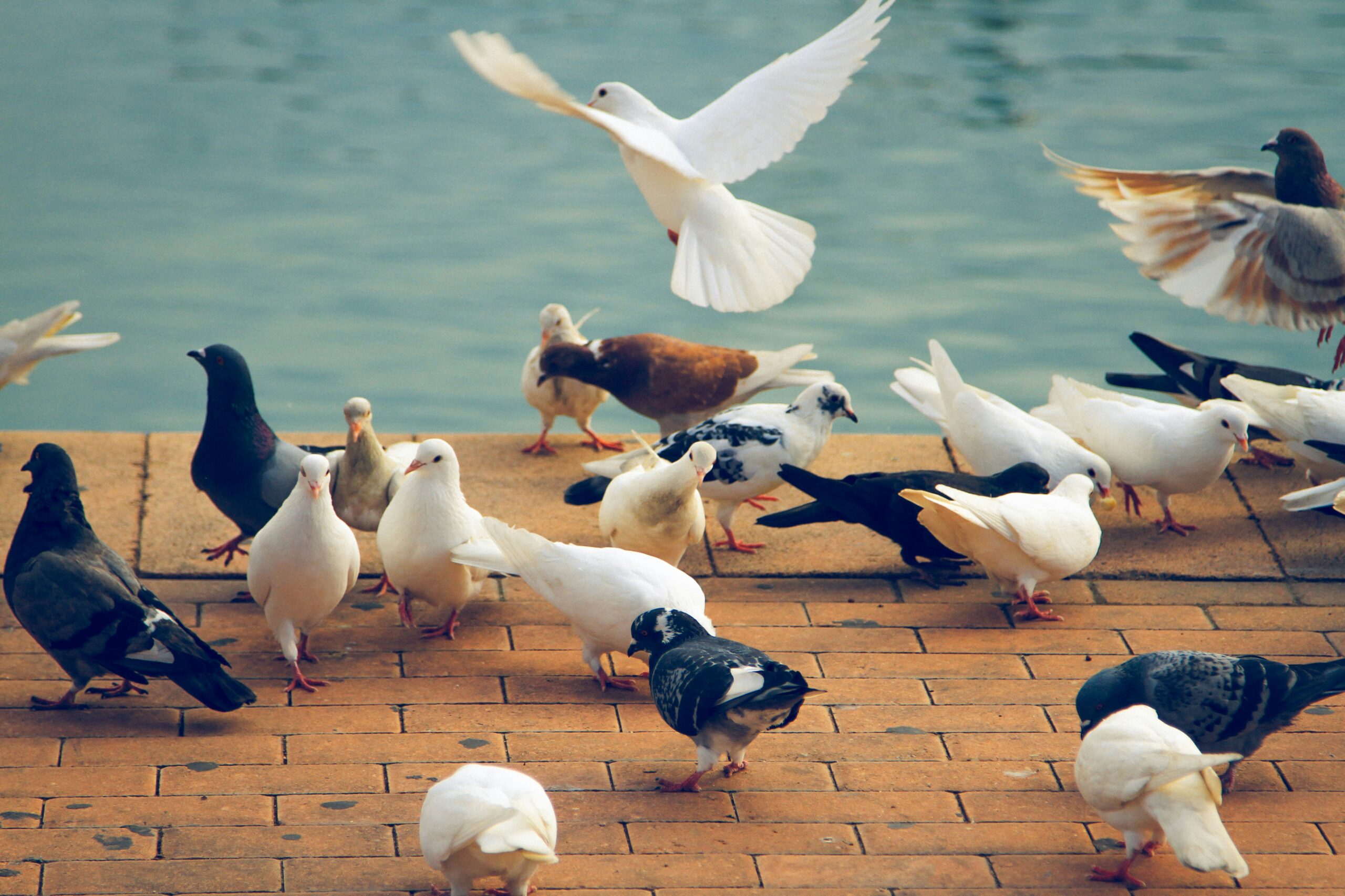Birds can be beautiful additions to any environment, bringing life and colour to our gardens, parks, and urban landscapes. However, when their presence becomes overwhelming, these feathered friends can transform into pests. Their droppings can damage property, contribute to foul odours, and even pose health risks. It’s crucial to understand which species might be causing these issues, so you can implement effective bird control strategies. One popular method is anti-bird netting, which serves as an effective barrier against a variety of bird species.
In this article, we’ll explore five common bird species often targeted by anti-bird netting. If you’re grappling with bird-related nuisances, exploring comprehensive bird control solutions by Apex Bird Control can provide tailored strategies to effectively mitigate these challenges.
1. Pigeons
Pigeons are perhaps the most ubiquitous urban bird. Often seen congregating in large numbers, these birds are notorious for their droppings, which can damage buildings and vehicles, leading to costly repairs. Pigeons are also potential carriers of diseases like histoplasmosis and cryptococcosis.
By installing anti-bird netting in areas where pigeons like to roost or feed, you can effectively deter them. The netting acts as a physical barrier, making it difficult for pigeons to access food sources or nesting areas.
Why They’re Attracted
Pigeons are opportunistic feeders. They are attracted to urban environments because of the abundance of food sources—everything from discarded litter to open dumpsters.
2. Sparrows
House sparrows are small, social birds that are often found in gardens and parks. While they may appear harmless, large flocks can cause significant damage to crops and ornamental plants. Their droppings can also contaminate food sources, leading to health risks.
Anti-bird netting can effectively protect your garden or crops by preventing sparrows from accessing them. Using fine mesh netting is particularly useful as it can keep out smaller bird species while allowing sunlight and rain to nourish your plants.
Tactics for Deterrence
Creating barriers with anti-bird netting not only protects your crops but can also encourage natural pest control. By managing sparrow populations humanely, you’ll create a more balanced ecosystem.
3. Starlings
Starlings are known for their striking plumage and acrobatic flight patterns, but they can pose significant problems when they swarm in large numbers. They are often associated with property damage and agricultural destruction, particularly in fruit orchards where they feast on ripe produce.
Using anti-bird netting can safeguard your outdoor areas, making it less inviting for these agile birds. The netting needs to be securely installed around fruit trees or forums to ensure that starlings don’t find ways to bypass it.
Why Control Matters
In addition to the damage they can cause, starlings are notorious for their droppings, which can lead to costly clean-up operations and health hazards. Implementing bird control solutions will help mitigate these risks.
4. Crows
Crows are intelligent and adaptable birds known for their problem-solving skills. While they can be entertaining to observe, they can also be quite destructive, particularly in agricultural settings. Crows often raid crops and gardens, causing significant losses for farmers.
Anti-bird netting can provide a practical solution for protecting vulnerable crops from crows. By creating an impenetrable barrier, you can safeguard your produce while still allowing for ventilation and light.
The Role of Crows in Ecosystems
Interestingly, crows play an essential role in ecosystems by controlling insect populations and assisting in seed dispersion. However, their protective measures—though necessary—are often needed to prevent them from becoming overly dominant.
5. Magpies
Magpies are easily recognised by their distinctive black and white plumage. While they are intelligent and resourceful, they can be a nuisance, particularly during nesting season. Magpies may target young birds in gardens or feeders.
To protect your garden from magpies, anti-bird netting can be incredibly effective. When installed around feeders or young plants, it will discourage magpies from raiding those areas.
Understanding Magpie Behaviour
Known for their curious nature, magpies will often explore various feeding opportunities. Therefore, it is essential to secure your property adequately, especially during the spring and summer months when birds are nesting.
Conclusion
Birds are an integral part of our ecosystem, but when their behaviour leads to conflict with humans, it becomes essential to implement effective control strategies. Anti-bird netting offers a humane and environmentally friendly solution to protect property and crops from common pests such as pigeons, sparrows, starlings, crows, and magpies.
By utilizing anti-bird netting, you can create a barrier that effectively deters these species from causing damage. This method has the dual benefits of protecting your assets and maintaining the balance of local wildlife.
For those struggling with persistent bird issues, exploring solutions can provide tailored strategies that address specific needs. If you’re looking for effective bird control solutions, consider reaching out to professionals to help safeguard your property against the consequences of an overabundance of birds.
Ultimately, understanding these common species and how to manage their populations will allow us to live harmoniously alongside nature without sacrificing our comfort and safety.

